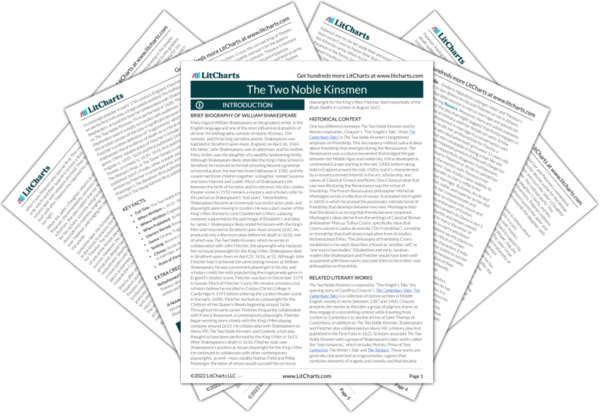A Morris dance is a traditional English folk dance typically performed by a group of dancers who often held implements such as sticks, bells, or handkerchiefs. The earliest mention of Morris dancing dates back to the mid-fifteenth century, when they were performed in court and in rural settings. The dance the countryfolk are performing incorporates a mummers play (a folk play performed by amateur actors) and celebrates the arrival of spring. The Schoolmaster’s comment about the performance being unfit for Theseus's “noble race” emphasizes the class disparity between Theseus and the countryfolk. In addition, one can interpret the remark as a gesture on the Schoolmaster’s part to appear humble and reverent toward Theseus and the other nobility.
